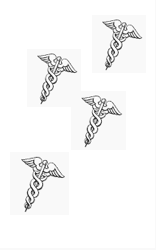
Episode 11 of “The THCB Gang” was live-streamed on Thursday, May 27th and you can see it again below
Joining me were three regulars, patient safety expert Michael Millenson (MLMillenson), writer Kim Bellard (@kimbbellard), health futurist Ian Morrison (@seccurve), and two new guests: digital health investment banker Steven Wardell (@StevenWardell) and MD turned physician leadership coach Maggi Cary (@MargaretCaryMD)! The conversation was heavy on telemedicine and value based care, and their impact on the stock-market, the economy and the health care system–all in a week when we went over 100,000 deaths from COVID-19.
If you’d rather listen, the “audio only” version is preserved as a weekly podcast available on our iTunes & Spotify channels — Matthew Holt













